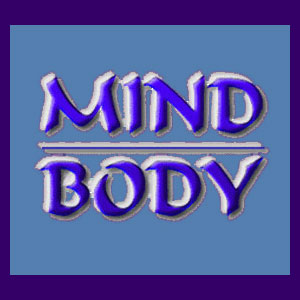
TMS equivalents are mindbody conditions that are caused by the same psychoemotional issues that cause classic cases of tension myositis syndrome. TMS is a condition most often characterized by severe chronic back pain, but TMS can also affect patients in almost any other anatomical location using oxygen deprivation to affect the muscles, nerves, ligaments and other tissues of the body. There are many equivalent conditions to TMS which do not involve any physical pain. There are purely psychological conditions often associated with the syndrome, which may exist alone or in tandem with bodily pain conditions.
There is no universal symptomatic profile for TMS. In fact, it is one of the most variable health issues in the world, with every case offering unique expressions of individualized suffering. It is for this reason that the very name TMS becomes invalid. Instead, the condition should simply be referred to what it actually is: a mindbody condition or a psychosomatic condition, not a specific syndrome which by meaning of name affects the muscles alone. This definition is long obsolete.
This article explores many of the more common expressions of TMS equivalents that do not involve back pain.
What Are TMS Equivalents?
Tension myositis equivalents are another way to describe psychologically induced pain syndromes. Originally, Dr. John Sarno, father of all things TMS, diagnosed the condition as a muscular pain syndrome, hence the nomenclature tension myositis syndrome.
Time and experience refined Dr. Sarno’s theories and soon he was diagnosing a condition that seemed to affect far more bodily systems than first thought. In some cases, he referred to the condition as tension myoneural syndrome in later literary works to shed light on the fact nerve tissue was often involved. However, this was still not broad enough to cover many of the symptomatic expressions under the TMS umbrella.
While the name TMS stuck, the condition itself really is much more than tension-based muscular back pain, as the name suggests. I do think Sarno would be far better received at this stage if he just dropped the antiquated TMS moniker in favor of something else which truly supported the width and breadth of his diverse work. This practice has been universally embraced by newer mindbody physicians who built on Sarno’s original literary works to develop their own diagnosis and treatment strategies for problematic psychosomatic expressions.
Psychogenic TMS Equivalents
Psychogenic pain is caused by an emotional process but is experienced in the physical body. TMS pain is not imaginary, nor exaggerated, nor experienced for some secondary gain. These are ideas that have been suggested by many traditional physicians in an attempt to categorize TMS as a non-condition.
It is no surprise that most doctors do not understand TMS, TMS equivalents, knowledge therapy or the incredible success Dr. Sarno has achieved with his ideas on the true nature of lasting pain. These medical professionals have not been trained in mindbody medicine and actually deny the ability of the mind to cause physical symptoms. Fortunately, the medical educational system is now helping to better prepare young doctors by once again placing more emphasis on the power of the mind to cause and cure physical symptoms in virtually all bodily systems.
Varieties of Tension Myositis Equivalents
Even Dr. Sarno is not sure how many health disorders are actually part of the TMS diagnosis. It seems that new conditions become associated with the diagnosis every week. Regardless of the expression affecting a given patient, knowledge therapy has worked wonders for people who are suffering from all sorts of chronic problematic disorders affecting almost every system in the body.
Skin to muscle, nerve to organ, sensory to motor function, TMS affects the variety of systems, sensations and bodily functions that make us human beings. Doctors now realize that there are mindbody factors responsible for virtually all diseases, ranging from cancer to autoimmune dysfunction to addiction.
One thing seems sure; psychosomatic pain is universal. The only variables are when, where, how long and how severely it occurs.
TMS Equivalents ARE TMS
I suffered from misdiagnosed back pain for 18 years. I was often crippled by the pain and literally could not function. Eventually, I repudiated the diagnoses of the various physical scapegoats that had been blamed for my horrific back pain.
I learned that my pain was truly of mindbody origin and was able to cure myself 100%. After this epiphany, I realized that many of the other symptoms that plagued me (to a lesser extent than back pain) were also psychogenic in origin. In my case, it was a super sensitive digestive tract, wrist pain, knee pain and headaches that turned out to be the equivalents of TMS. They did not happen all at once, but instead, came and went in cycles or in sequence throughout my life.
I am not a person who believes in what might seem like “new age psycho-babble.” I am a normal guy who thought he had pain due to his herniated discs and degenerative disc disease. I never would have guessed that this degree of pain was even possible from a psychological causation. Thankfully, I learned the true facts, before my life was spent and my days were exhausted suffering from this terrible ordeal. I am a tremendous believer in the power of mindbody medicine and its ability to help others find lasting relief. This is the primary reason for my education and advocacy efforts on the part of chronic pain sufferers worldwide. I want people to find effective methods of resolving pain, without subjecting them to the dangers of surgery, drugs or other cruel and often illogical treatments.
My most sincere recommendation is to learn. Learn why your pain may not be going away despite multiple treatments. Learn why your symptoms may not be consistent or logical with your diagnosis. Learn how many of the conditions that bother you might be much more psychological and much less physical than they seem. There is nothing at all to risk by trying…





